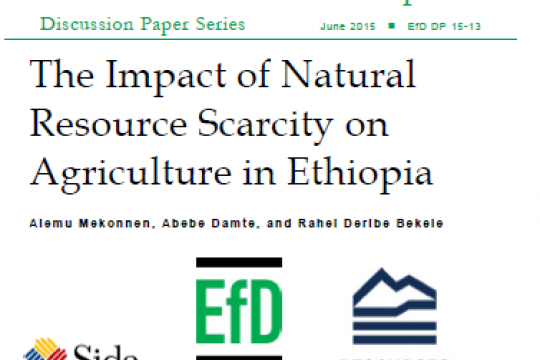In developing countries such as Ethiopia, rural households spend a considerable part of their time in agriculture as well as resource collection. However, rigorous empirical studies on the impacts of scarcity of environmental resources on productive activities such as agriculture are very limited—in developing countries in general and Africa in particular. Using a panel data set collected from Ethiopia, this paper examines the effect of scarcity of fuelwood and water on time spent in agriculture. The results of the empirical analysis show that fuelwood scarcity, as reflected by the shadow price of fuelwood, has a negative and significant impact on time spent on agriculture. This suggests that addressing fuelwood scarcity has the potential to improve agricultural production, as well as other benefits. The results also indicate that scarcity of water has no effect on time spent on agriculture, suggesting that any lost time due to water scarcity probably comes out of other activities. The role of other conditioning variables on labor input to agriculture was also examined.
The Impact of Natural Resource Scarcity on Agriculture in Ethiopia
EfD Authors
Country
Sustainable Development Goals



